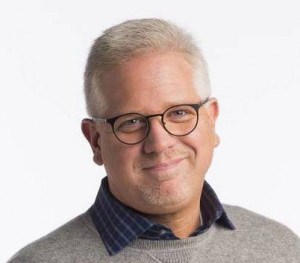
Beck
Glenn Beck and his independent network TheBlaze are not happy about Time Warner Cable and Comcast merging operations and think it will concentrate too much power in the hands of a single entity that already ignores independent voices seeking a spot on the cable dial.
Beck left Fox News Channel to help start a new network — TheBlaze — that began as GBTV, an online streaming video operation. In the fall of 2012, the network, which airs more than 40 hours a week of new programming, secured exclusive carriage on Dish, the satellite television provider. Now that the exclusivity agreement has expired, TheBlaze management and viewers have launched a very vocal campaign to get the channel on cable systems across the country. The venture has been modestly successful with smaller cable operators like Buckeye Cablevision in Ohio and ETC Communications in Michigan. Beck’s network can also be seen on Cablevision’s lineup in the suburbs of New York City. But for most of the country, the only way to watch is to stream it online for $9.95 a month/$99.95 a year. Large cable systems have so far shown little interest in picking up the network.
“Comcast is one of the bigger pains in the neck for TheBlaze,” Beck told his radio listeners.
“Since launching the GetTheBlaze campaign, 50 small, midsized and major cable systems have begun carrying our network,” said TheBlaze CEO Chris Balfe. “These are the cable systems that must be responsive to their customers to survive. Monopoly type [multichannel video programming distributors] like Comcast and Time Warner Cable do not have a good history of listening to customers or supporting independent programmers whose content is in demand like TheBlaze. While we are skeptical that giving Comcast even more market power will benefit consumers, promote competition or lead to more diversity of voices, we will continue our successful campaign because eventually, even giants have to listen to what their customers want.”
 “Look, the amount of decision makers, which is so surprisingly small in the industry in general, is potentially getting smaller,” Steve Krakauer, TheBlaze’s vice president of digital content told POLITICO. “Keeping up the fight is so important.”
“Look, the amount of decision makers, which is so surprisingly small in the industry in general, is potentially getting smaller,” Steve Krakauer, TheBlaze’s vice president of digital content told POLITICO. “Keeping up the fight is so important.”
Cable industry observers agree that life can be difficult for an unaffiliated independent cable network. Ovation found itself thrown off Time Warner Cable’s lineup for nearly a year because of a lack of original programming and miniscule ratings. But networks owned by studios like Universal or large broadcasting entities like Viacom stay, despite similar viewer response. Ovation had no leverage to compel continued carriage. Networks owned by larger companies often do, because they are packaged and sold to cable operators in a bundle. A cable company refusing to carry one low-rated cable network could be threatened with a much more expensive rate for the channels it does want or even face the loss of larger, must-have channels owned by the same company.

Polka
Beck isn’t alone being concerned.
The American Cable Association, a trade group that represents small and medium-sized cable operators, said it is carefully considering the potential impact of the merger on the cost of video programming sold to smaller operators.
“ACA has long acknowledged many problems in the pay-TV market, including the soaring cost of retransmission consent and sports networks and the record-setting number of broadcaster-imposed TV signal blackouts,” CEO Matthew Polka said in a statement. “ACA will be looking closely to see whether this transaction makes matters worse for small and medium-sized cable operators and their customers.”


 Subscribe
Subscribe
Beck is a Libertarian who claims to believe in the unfettered free market. What cause does he have to complain when the industry heavyweights ignore his piddling little channel?
Just because he believes in an unfettered free market doesn’t mean he’s actually doing business in one… this industry is far from a free market.
No, but there would be nothing to stop the more powerful companies from dominating the marketplace just as the do today (with government help). When there is no government regulation or oversight stopping you from using your dominance to stamp out the competition, then you don’t need government assistance to do it in the first place.
Beck’s utopian dreams of a libertarian economy are no more realistic than the dreams well-meaning communists had after the Russian revolution.
You forget about consumer choice… That is what stops the overly powerful companies from being overly powerful in the first place. Competition. Just look at what AT&T and TWC are offering/promising in Austin and Kansas City now that they have to compete with Google. There is nothing inherently different in those markets when compared to any other, except now there is another option for the consumer. For every success story of government regulation there have to be a dozen snail darter catastrophes.
Then how is it that broadband is faster and cheaper in other nations where government regulations are typically much more frequently enforced? Not all regulation is good, and Phillip has documented many cases over the years that are, indeed, terrible. But the myth that no regulation would be better is disproved time and again throughout history (which is why many government regulations came into force in the first place). Since you mention them, AT&T itself was blocked by the government last year from taking over T-Mobile. The result? A feisty independent T-Mobile that has slashed prices, done away with many… Read more »
Post hoc ergo propter hoc? AT&T was massive thanks to governmental sponsored monopoly, had they had a normal start without the Bells, who knows what would have happened, this is just an example of the gov’t trying to clean up its own mess. As for the environment, the endangered species act is a marvelous example. 1800+ species on the list, only 40 ever removed. 9 went extinct, 16 were under counted and never endangered to begin with. All this time, they’ve basically saved a dozen species (including plants) and spent millions and millions of dollars and man hours, halted billion… Read more »
Me, for one. I would almost certainly have been responsible for the death of a baby in a car accident a couple of years ago if it hadn’t been for the stringent government safety regulations imposed upon all car manufacturers, not to mention those governing the quality of the baby seat the child was in. As traumatic as the accident was at the time, it would have been many times worse if all parties hadn’t been able to walk away unhurt. And I guess you don’t any elderly people whose health and lives depend on the healthcare they are receiving… Read more »
I’ll concede that child seats are great. There’s absolutely no chance at all that any enterprising young engineer would have ever come up with the idea to make and market them without the government… No one in modern history has ever purchased a vehicle because it’s the safest vehicle on the road, and therefore no automobile manufacturer would intentionally vie for that title… (Volvo?!) Social Security provides a negative return on investment for almost everyone that contributes. SSDI is a moral hazard and is destroying people’s lives by getting them hooked on the handout, too afraid to work too hard… Read more »
I’ll concede that child seats are great. There’s absolutely no chance at all that any enterprising young engineer would have ever come up with the idea to make and market them without the government… Availability is not the issue. People are notoriously bad at assessing risk. Given the choice between a unsafe child seat at half the price of a safe one, many parents would opt to save the money in the mistaken belief that their children would be safe, and there would be plenty of businesses willing to sell the seats to them. I guess it’s too bad for… Read more »